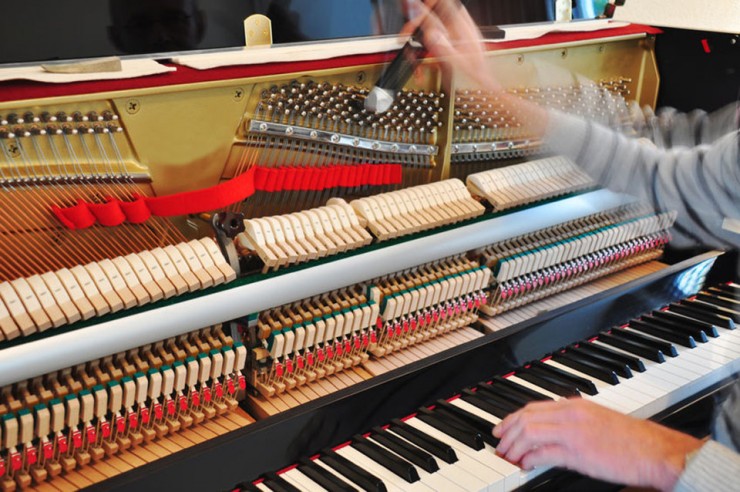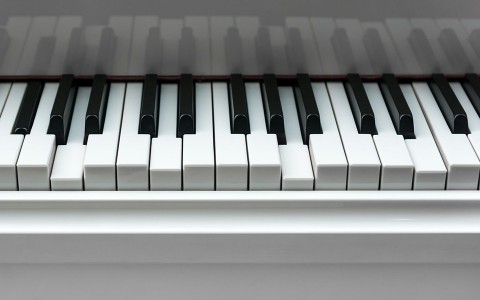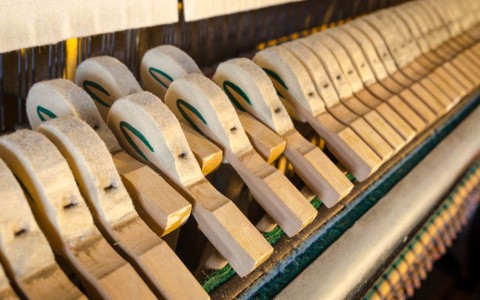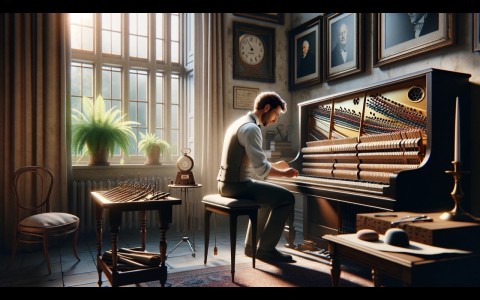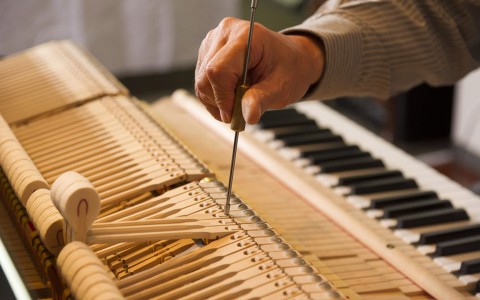Tuning your piano is a very basic thing to do for any piano owner. But, just how often should you tune your piano to keep it in good condition? We know when it is the time to visit the doctor, to trim our nails, or to cut our hair - how about when to tune your piano? Also, why does the piano even need to be tuned at all? And for us living in hot and humid Singapore, do the usual tips and advices apply?
Let's answer why a piano needs to be tuned first. A piano is essentially a percussion instrument that relies on the hammer action: that is, when a key is pressed, the hammer strikes the strings, and the sound is produced because of the vibrations of the strings. Since the fundamental frequency of a string depends on the its length, tension, and mass per unit length (read more); if any of these three properties is altered, the sound quality will change as well. And this is when the acute listener detects an off-pitch. Now, the strings of the piano have extremely high tensions. In a modern grand piano, the total string tension can exceed 20 tons! As time passes, these string tensions drop. That is why you need to tune your piano - which is the act of adjusting the tensions of the strings, thereby aligning the intervals among their tones, to keep the piano in tune.
The normal guidelines for how often to tune your piano are as follows.
- Pianos should be tuned twice a year.
- A new piano requires more tuning in the first year or two, up to 4 tunings in each year. With new piano, comes new strings which are not "seasoned" - they are "unstable" and tend to stretch faster. Thus, the off-pitches are heard much earlier.
- Piano which is played on often and intensively could require additional tunings. The frequent and hard hammer striking actions on the strings will affect the tensions of the strings much faster. This is analogous to a car driver driving very fast around bends that will result in the tyre marks wearing off faster than normal.
- An unused piano should be tuned once a year minimum. Not using the piano does not negate the necessity of a tuning. The tensions in the strings are always there, and it is exactly these high tensions that cause the strings to stretch and the pitch to go flat.
In fact, regular piano tunings help to build string "strength". The strings don't go out of pitch that easily or often as they did before after a few regular tunings. So, a litte investment at the start can go a long way. Beware, corrective treatments due to a long interval since the last tuning can be very expensive.
Sometimes, piano players might not detect certain issues which are obvious to a trained piano technician, so the regular tunings can help to prevent those small problems from becoming bigger ones Ok, I just mentioned the term "piano technician". A piano tuner might not be a piano technician, and a piano technician might not be a piano tuner. These are two different skill sets. So a piano tuner who is also a piano technician is a value add.
You ever notice that your piano has a heater inside, and has to be on 24/7? The heater tries to keep the humidity level inside the piano as contant as possible. Ideally, the humidity level should not fluctuate at all. Because the piano is mostly made of wood, changes in the humidity causes wood movement which in turn affects the tension of the strings; not to mention that it causes even changes in timbre, silent keys, and a host of other costly, avoidable problems. To make matters worse, the strings' tensions don't change equally: those near the centre of the soundboard move the most, compare to those at the edges of the soundboard.
Singapore is hot and humid throughout the whole year, and there are two monsoon seasons. Unfortunately, the humidity levels can vary from more than 90% in the morning, to 60% in the mid-afternoon. On some rainy days, it can even hit 100%. Our national average relative humidity is 84%, much higher than the optimal 35% to 45%, up to 55% where piano performs best at. That's why the heater must be kept on 24/7.
Have you tuned your piano in the last 6 months?
